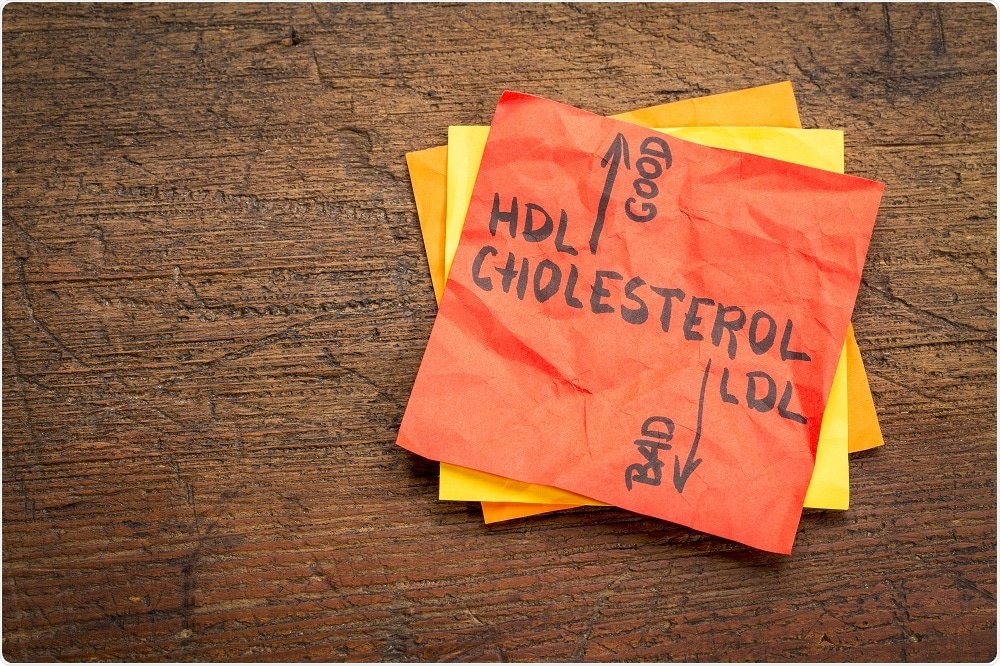Levels of high density lipoprotein (HDL) cholesterol, which is known for its cardioprotective role, may not accurately represent cardiovascular risk in older women, according to research published today in 'Arteriosclerosis, Thrombosis, and Vascular Biology'.
 Image Credit: marekuliasz / Shutterstock
Image Credit: marekuliasz / Shutterstock
Cholesterol is essential for the normal functioning of the body, being needed for cell membranes and vital hormones. It is transported in the blood as lipoproteins, in which the hydrophobic cholesterol is protected by hydrophilic phospholipids.
Low-density-lipoprotein (LDL) cholesterol comprises mainly cholesterol and can stick to the lining of arteries, impeding blood flow and increasing the risk of cardiovascular disorders.
In contrast, HDL-cholesterol removes cholesterol from the blood and transports it to the liver to be broken down, and so can reduce the risk of developing heart disease or stroke.
HDL-cholesterol is thus commonly referred to as 'good cholesterol' and high levels of HDL-cholesterol are generally considered to be an indicator of a reduced cardiovascular risk.
The latest research, which analysed cardiovascular risk and various HDL measures relative to menopausal status in 1,138 women followed since 1999s, suggests that the heart-protective qualities of HDL-cholesterol may be impaired by post-menopausal factors.
These findings raise concerns that high HDL-cholesterol levels, which are typically taken to indicate low cardiovascular risk, could mask a significant heart disease risk in post-menopausal women.
The results of our study are particularly interesting to both the public and clinicians because total HDL cholesterol is still used to predict cardiovascular disease risk... This study confirms our previous work [that showed] higher HDL cholesterol may not always be as protective in post-menopausal women as we once thought"
Samar El Khoudary, Lead Author
The data showed that higher HDL-cholesterol levels were associated with increased atherosclerosis risk in post-menopausal women. This was most evident in women who reached menopause at an older age and had been post-menopausal for at least 10 years.
High numbers of large HDL particles close to the occurrence of menopause were also linked to an increased risk of cardiovascular disease.
In contrast, higher levels of total HDL particles were associated with a lower risk of atherosclerosis. Additionally, the presence of a high number of small HDL particles was beneficial in post-menopausal women.
Identifying the proper method to measure active 'good' HDL is critical to understanding the true cardiovascular health of these women.”
Matthew Budo, Senior Author
During the transition through menopause a variety of physiological changes occur that affect sex hormones, lipids, body fat deposition and vascular health.
The authors of the latest research hypothesized that these metabolic changes in combination with a fall in oestrogen levels can give rise to chronic inflammation that affects the quality of HDL particles.
The team now plan to investigate the biological mechanisms that contribute to the change in the quality of good cholesterol at menopause.
It is hoped that the research will clarify the cardioprotective contribution of good cholesterol to the health of post-menopausal women to inform guidelines for screening and treatment.